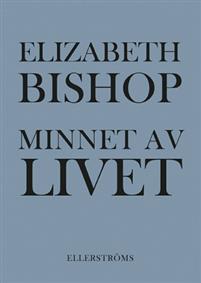Egentligen Robert Lewis, skotsk författare, född i Edinburgh. Robert Louis Stevenson (1850-1894) kom till världen i en välsituerad familj. Fadern var ingenjör och sonen förväntades gå vidare i samma fotspår.
Av hälsoskäl, men också av äventyrslusta, gjorde Stevenson otaliga resor i Europa och USA. 1876 träffade han amerikanskan Fanny Osbourne i konstnärskollektivet Grez-sur-Loing utanför Paris och hon kom att få stor betydelse för hans författarskap. De gifte sig 1880 och flyttade så småningom till Samoa i Söderhavet.
Robert Louis Stevenson är författare till några av det sena 1800-talets mest välbekanta romaner. Han började som författare av huvudsakligen reseskildringar, t.ex. "Resa med en åsna i Cevennerna" (1789, Travels with a Donkey in the Cévennes), en roande berättelse om en 12 dagar lång resa i ett bergigt landskap i södra Frankrike. Enda ressällskap var den envisa och oberäkneliga åsnan Modestine. Men Stevenson skrev även essäer och poesi. På svenska finns "Barnets lustgård" (1885, A Child’s Garden of Verses), som innehåller verser för barn. Källa: Alex författarlexikon
My shadow, by Robert Louis Stevenson
(from A child's garden of verses. London : Longmans, Green, 1885.)
I have a little shadow that goes in and out with me,
And what can be the use of him is more than I can see.
He is very, very like me from the heels up to the head;
And I see him jump before me, when I jump into my bed.
The funniest thing about him is the way he likes to grow—
Not at all like proper children, which is always very slow;
For he sometimes shoots up taller like an india-rubber ball,
And he sometimes gets so little that there's none of him at all.
He hasn't got a notion of how children ought to play,
And can only make a fool of me in every sort of way.
He stays so close beside me, he's a coward you can see;
I'd think shame to stick to nursie as that shadow sticks to me!
One morning, very early, before the sun was up,
I rose and found the shining dew on every buttercup;
But my lazy little shadow, like an arrant sleepy-head,
Had stayed at home behind me and was fast asleep in bed.
***
Nu blir det naket i midnattens Brasilien.
José Carlos Limeira (född 1951) har publicerat berättelser, artiklar, kolumner och dikter sedan 1970-talet, bland annat täta bidrag till serien Cadernos Negros sedan starten. Hans verk har översatts till flera språk och studerats i avhandlingar i Brasilien och utomlands. Källa: Qarrtsiluni (numera nedlagd litterär nättidskrift).
Blackouts, by José Carlos Limeira
(Published in Qarrtsiluni, 2011. Translation: Bruce Dean Willis.)
We never fear the dark.
Finally, the fruits of our dreams,
we are whole and ripe
and
if we meet this night,
sensual woman of easy promises,
I will let down your hair
I will pull you tightly to me
in a way both improper and bare
 |
| São Paulo, the largest city in Brazil, during November 10 blackout, 2009. |
Let the bigshot power-brokers
disconnect the circuit breakers
ration the source, reclaim our debt
from downtown to the outskirts, yet
let no one dare
look into a certain room
illuminated
right in the middle of the blackouts
because whoever does so will see
our corporeal nudity
united
full of light
radiance from within the night
a man a woman
and our sexes, desires
permanently ignited
***
Samtidigt som skuggan tvekar och ligger kvar i sängen i Skottland står solen högt på himlen en varm höstdag i Filippinerna.
The last in the park, by Ernesto V. Epistola
(Published in The Manila Times Online, 2013.)
Warm noon of autumn
When we are done talking
Of restless fickle flights of pigeons
Circling in the park
And of old men with half-closed eyes
Sitting sphinx-like in the sun
(Perhaps
It is a delicate game for old men
To play with bubble fragile thoughts
Of another autumn’s warmer noon
Perhaps)
And of seedy men
Playing millionaires
With their smiles
And of little children laughing
I shall touch your hand
But if no words come
Or if I merely stammer
About the leaves
Being in shades of flowers
(Perhaps
A leaf’s ambition is to be a flower
Perhaps)
You will understand
Here is the meaning of our only winter
Only spring
Only summer
In the last warm noon of autumn
When we are done talking
Of restless fickle pigeons
Circling in the park
Of old men
And of little children
Laughing in the park

















